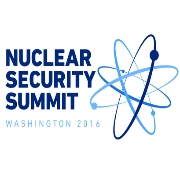4th Nuclear Security Summit begins in Washington
The fourth edition of Nuclear Security Summit (NSS) began in Washington, United States to discuss a gamut of issues pertaining to nuclear security.
In this edition of summit, heads of about 53 countries and representatives of five international organisations including the UNO, International Atomic Energy Agency (IAEA), European Union (EU), Interpol are taking part.
India is being represented by Prime Minister Narendra Modi in the two-day summit. The fourth summit is the last summit under the current format and also under the presidency of Barack Obama.
Key facts
- The summit will highlight achievements and commitments of several countries towards safeguarding nuclear devices and technologies and reducing the threat of nuclear terrorism.
- This edition of summit is expected to take stock of the measures being taken by all countries to safeguard nuclear materials and facilities and also prevent non-state actors gaining access to them.
- It is also a crucial element of the US strategy to keep terrorists from acquiring fissile material to make nuclear weapons.
- The prime focus of the summit will be on North Korea and the terrorist organisation ISIS (Islamic State of Iraq and Syria).
Background
- The idea of Nuclear Security Summit (NSS) was mooted by the US President Barack Obama in 2009 and the first summit was held in 2010 in Washington.
- It is a signature event of global diplomacy in Obama’s presidency that aimed at preventing nuclear terrorism around the globe.
- India has been contributing its bit to strengthen nuclear security by taking an active part in the summit ever since its inception in 2010.
- The second, third summits were held in Seoul (South Korea) and The Hague (Netherlands) in 2010, 2012 and 2014 respectively.
Key outcomes of last three Summits
- Motivated countries to tighten national laws, rules pertaining to nuclear safety, launch Nuclear Safety Fund (NSF) and set up Nuclear Safety training and Support Centres to impart training in safe use of nuclear devices.
- Helped countries to enhance physical protection at 650 international radiological facilities and 32 nuclear plants besides putting in place radioactive detection equipment at 328 border crossings, airports and seaports across the globe.
Month: Current Affairs - April, 2016



Lucky
April 2, 2016 at 4:17 amIts nice. I hope it helps.
Lucky
April 2, 2016 at 4:17 amIts nice. I hope it helps.
Gangadhar
April 4, 2016 at 1:05 amIt is good it helps I hope
Gangadhar
April 4, 2016 at 1:05 amIt is good it helps I hope
jitendra
January 20, 2018 at 6:58 pmit is not aegis of the Union.
jitendra
January 20, 2018 at 6:58 pmit is not aegis of the Union.
jitendra
January 20, 2018 at 6:59 pmUN
jitendra
January 20, 2018 at 6:59 pmUN